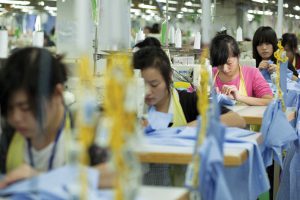BLOOMBERG
China’s economic recovery lost momentum in the second quarter, adding to risks for the world economy as Beijing hints that any stimulus measures will be targeted rather than broad.
Gross domestic product (GDP) grew at a slower-than-expected pace of 6.3% in the second quarter compared with a year earlier, when dozens of Chinese cities were in lockdown, but just less than 1% from the first quarter. Deflation is a major risk now, the data showed, with economy-wide prices declining for the first time since 2020, while youth unemployment climbed to above 21%.
The data intensified economists’ calls for more stimulus, with attention now shifting to a meeting later this month of the Communist Party’s Politburo, which will decide economic policies for the rest of the year. Beijing has hinted, though, that stimulus measures this year will likely be limited in scale, reflecting its conservative growth target of around 5% for the year.
Data for June released by the National Bureau of Statistics showed a slowdown in growth of consumer spending, which has been the main driver of China’s economy this year.
Retail sales rose 3.1% in June from a year earlier, down from 12.7% in May.
“What we all expected was a consumption and service-led recovery. If that is sputtering, then there’s no engine left for the recovery,†said Louis Kuijs, chief economist for Asia Pacific at S&P Global Ratings.
“We never want to read too much into one month’s data. But if the June data on consumption is representative, then that’s nota good sign.â€
To account for the base effects from last year’s lockdowns, economists have focused on quarter-on-quarter and two-year average growth rates. Both those measures showed a slowdown in the second quarter compared with the first three months of the year.
Compared to the first quarter, GDP growth slowed to 0.8% from 2.2% in the first three months of the year.
Investment by China’s vast property sector also worsened in June from the previous month, a sign of ongoing pain in the housing market. “Property is the key to resolving the various current problems,†said Jacqueline Rong, chief China economist at BNP Paribas SA. “The central bank needs to put a floor to the credit crisis among developers to help them survive.â€
China’s benchmark CSI 300 Index of stocks closed 0.8% lower as Asian peers broadly dropped. It was the index’s first decline in three sessions.
Finance ministers and central bank governors from the Group of 20 nations met in India against the backdrop of slowing global growth.
The world economy is expected to grow 2.8% this year, lower than its pre-pandemic pace, and recent high frequency indicators show weakness in manufacturing, the International Monetary Fund said.
While speculation has grown that Beijing will deliver more stimulus to the economy, officials are reluctant to drive up debt, especially in the property sector. That suggests any support measures may be smaller in scale than previous years and targeted towards specific industries.
The People’s Bank of China, which cut its key policy rate in June, refrained from easing policy, although many analysts expect a move in coming months.
 The Gulf Time Newspaper One of the finest business newspapers in the UAE brought to you by our professional writers and editors.
The Gulf Time Newspaper One of the finest business newspapers in the UAE brought to you by our professional writers and editors.
